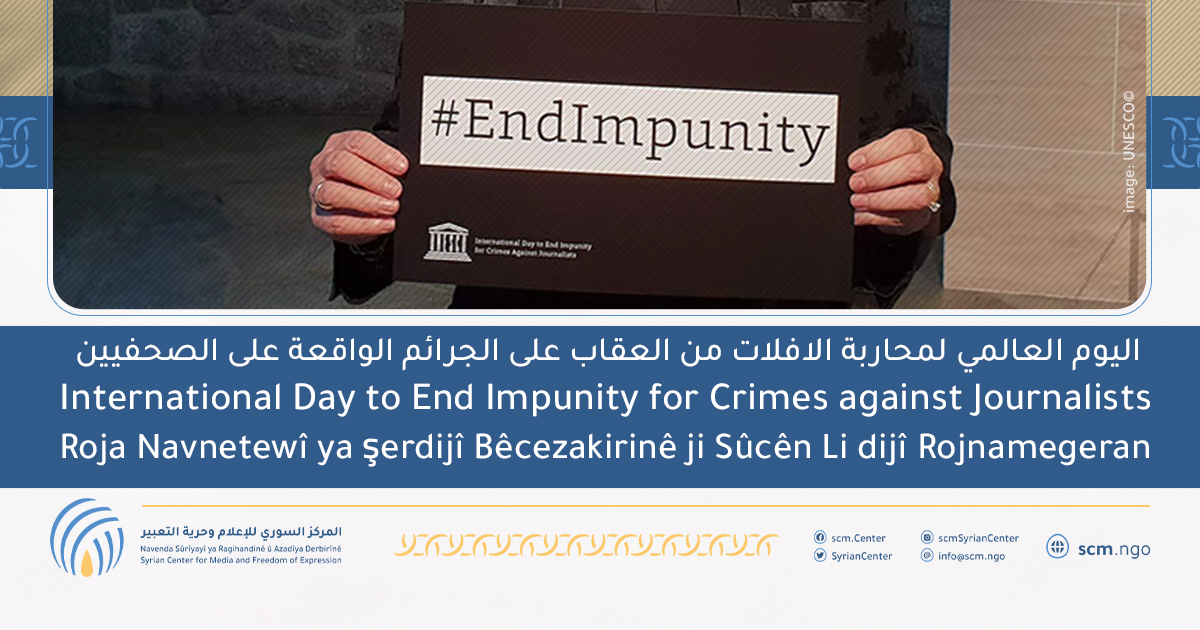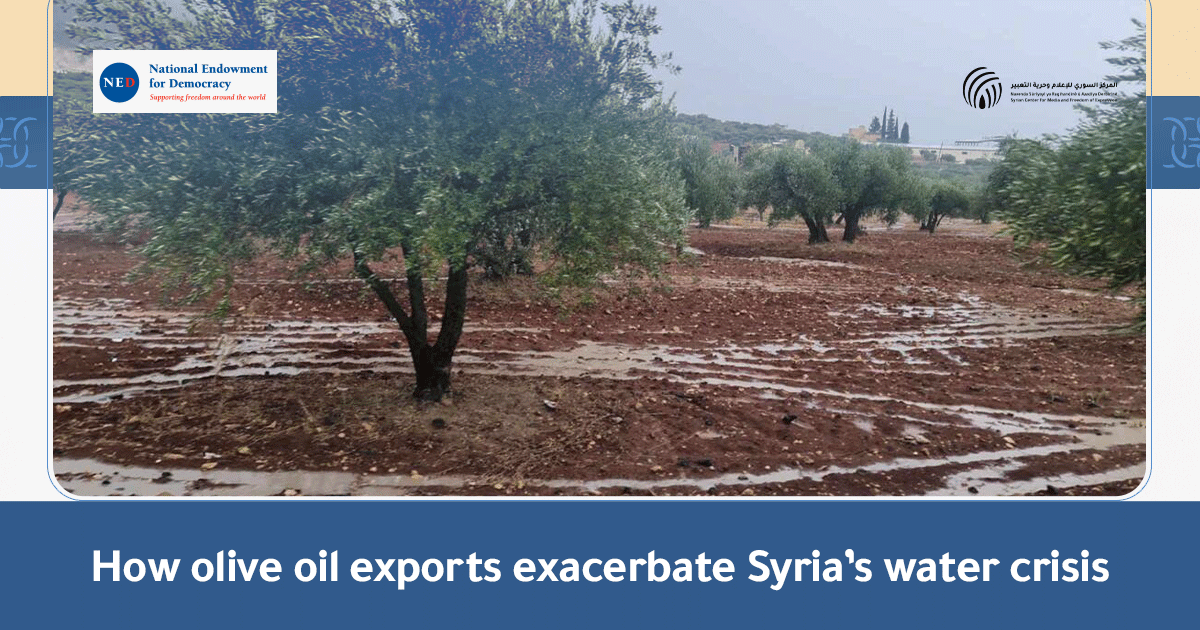The United Nations General Assembly on 21 February 2014 adopted Resolution 68/163 titled: “the Safety of Journalists and the Issue of Impunity “ which proclaimed 2 November as the ‘International Day to End Impunity for Crimes against Journalists .
This date was chosen in commemoration of the assassination of two French journalists in Mali on 2 November 2013.
Over 1200 journalists have been killed according to the UNESCO observatory of killed journalists , while performing their job in reporting news and information to the audience During the past fourteen years 2006-2019.
Where one journalist was killed every four days, while our report which was published on the occasion of the World Press Freedom Day May 3, 2021 titled “Syria: The Black Hole for Media work – Ten Years of Violations”, documented (1609) violation against media workers between March 15, 2011 and the end of December 2020, including /70/ Violations against female journalists, or workers in the media field, with a rate of at least one violation against one of the media workers every three days.
The same report also indicated that Syria was the deadliest country in the world for journalists in 2016, as 261 violations were documented.
While close to 9 out of 10 cases of these killings remaining judicially unresolved, according to UNESCO, accountability for the crimes committed against journalists and media workers, the victims of this large number of wide-spectrum violations, did not know any kind of punishment for their crimes, ranging from kidnapping to enforced disappearance, to torture and killing under torture, or through unfair trials. Direct targeting, especially of Syrian M/F journalists and media professionals. Unfortunately, impunity encourages the repetition of the crime by the same criminals, as well as encourages other parties to commit similar crimes.
According to the mentioned report: the Syrian government topped the violations list with a total of 795 violations, and that’s four times the opposition forces violations number, which comes in second place with a total of 171 violations, and the lowest rate was for Autonomous Administration of North and East Syria with total 106 violations, although the largest percentage of journalists and media institutions in Syria are within their areas of control.
and the impunity of the perpetrators of these violations is considered one of the most important factors that encouraged the other parties involved in the Syrian conflict, whether internal or external, to repeat the crimes.
The report also documents 78 violations committed by the Russian Federation and 38 violations by the Turkish government, while 5/ violations were recorded by both the Jordanian security forces and the Lebanese security forces.
As for Al-Nusra Front, recorded in the documentation /140/ violations, in addition to /6/ by the Syrian Salvation Government, while 164/ violations committed by ISIS.
Fighting impunity for crimes against journalists is one of the most important steps in restoring the rule of law and trust in the judicial system in the country.
According to UNESCO: Impunity leads to more killings and is often a symptom of worsening conflict and the breakdown of law and judicial systems.
All parties to the conflict, especially the Syrian government must therefore immediately implement the following steps :
- Immediately and unconditionally release detainees and forcibly disappeared persons from official and secret detention centers; end torture and inhuman and degrading treatment, and implement the requirements of a fair trial In the judicial bodies.
- Immediately and unconditionally disclose the fate of the forcibly disappeared media professionals, and implement the UNSC Resolution No. 1738 of 2006 regarding the protection of journalists handling dangerous missions in areas of armed conflict, and ensuring the appropriate action to ensure accountability for crimes against media workers.
- Allow access to all detention facilities for international human rights monitors, including the UN Special Rapporteur on extrajudicial executions, OHCHR, the HRC Commission of Inquiry on Syria, and the Special Rapporteur on the situation of human rights in Syria.
- Immediately stop the implementation of any death sentences, and ensure that the most stringent international standards for a fair trial are respected when prosecuting crimes that are likely to receive death sentences.
- All crimes of killing M/F journalists and media professionals must be investigated while ensuring that the investigations have effective resources, and ensuring that all those responsible for the killing of journalists and media workers are held accountable; Reducing the phenomenon of impunity for crimes committed against the media and media workers.
- Protect M/F journalists and media workers within their areas, secure media coverage sites that are not affected by hostilities, and punish anyone found guilty of assaulting media workers.





